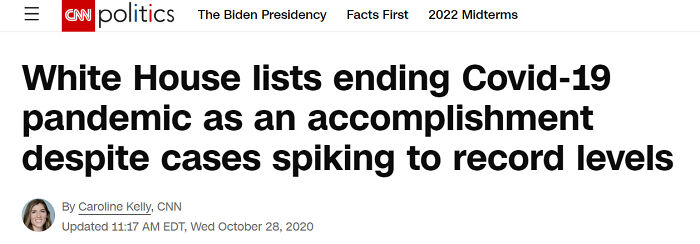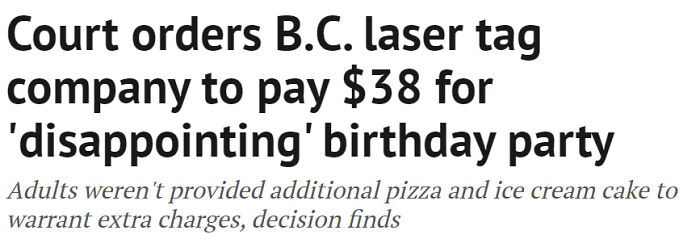
35 Absurd Stories That Are 100% True But You Might Find Them Too Wild To Believe
It can be quite a challenge to tell what’s true and what’s lies whether you’re talking to someone in real-life or surfing the internet. It’s easy to brag but harder to verify. Or to put it differently, it takes far more effort to refute lies than to spread them. And though many stories actually do sound way too outlandish to be real, fact can often be stranger than fiction.
There’s one subreddit that took this idea and ran with it. The small online community shares screenshots that end up confirming the ridiculous stories that people have told their family and friends. It’s the kind of stuff that makes you wonder whether all the wild things your pals boasted about were more than mere bragging… We've also collected some of the most fake-sounding but genuinely real headlines from the extremely popular r/nottheonion subreddit for your enjoyment. Check out the best posts and upvote your faves!
Bored Panda wanted to learn more about spotting potential red flags that a news story might be fake or biased, so we reached out to Lisa McLendon, Ph.D., the William Allen White Professor of Journalism and Mass Communications and the Bremner Editing Center Coordinator at the University of Kansas. She was kind enough to shed some light on this, as well as on how to distinguish between reliable and unreliable sources.
This post may include affiliate links.
It goes from great to legendary because of the "get f****d" at the end, lololol.
Load More Replies...When people are blatantly doubtful of anecdotal posts like these, I first think who really cares if it’s probable or not. Then, I think one of two things: they’re either cynical & skeptical to the point of missing all the beauty of life or they’re so young & inexperienced with the world they’ve been trapped in a very tiny bubble. Both are really sad! And as those of us who’ve lived many decades and/or explored the planet, we’ve seen the most unlikely of things. Things completely unbelievable.
I seriously get tired of all of the people clambering to call everything "Fake!" Like, yeah some stuff is absolutely ridiculous. But also, sometimes ridiculous things happen.
Load More Replies...God, I wish my family would be this creative (and brief) when going around the table at Thanksgiving saying what they are thankful for before the food goes cold.
Professor McLendon, from the University of Kansas, explained that anyone looking for red flags in news stories ought to start by reading the headline. "Does it make outlandish claims? Does it use language intended to make a reader angry or scared?" she told Bored Panda via email.
Next, the readers should take in the beginning of the story. "Does it attribute information to reliable sources, that is, experts, officials, eyewitnesses, people who would actually know such things? Does it walk back whatever was claimed in the headline? Does it link to reliable sources?"
It's very helpful if the readers then take the time to look at other sources and how they present the information. "Even when a news outlet 'scoops' everyone else, pretty soon, if it’s a legitimate story, other news outlets will check it and publish it too," McLendon said.
It's usually very time-intensive for readers to double-check every claim that an article makes, so a better approach is to gauge the (un)reliability of the source. Bored Panda was curious about how readers could go about distinguishing between trustworthy sources, as well as those that are best left untouched.
"Legitimate news sources follow a code of ethics and standards for journalism that include not publishing rumors, verifying information, correcting errors, and so on," Professor McLendon told us.
"The New York Times, BBC, Reuters, Associated Press (AP), etc. are examples of this, and established local newspapers are too. One way to tell is whether other news outlets cite them. For example, AP picks up and distributes content from its members, and only legitimate news outlets are members of AP," she said.
"But there are 'pink slime' news outlets that have popped up in the U.S. that look similar to legitimate newspapers but push highly biased and even incorrect information," McLendon urged readers to check who's funding the outlets and who's in charge of them. "Are they even located in your community? Are they trying to push a particular agenda while trying to appear that they aren’t? For health information, make sure it comes from a hospital or doctor who does not have a vested interest in selling you something."
The subreddit, which was founded in October 2018, has fewer than 6k members. However, the idea behind the niche online group is fascinating. Instead of just collecting all the times that people bragged online only to be called out for their lies, they flipped the script and decided to do the opposite. Namely, showing that bizarre stories can have a solid kernel of truth. The moderator team running the sub asks their community members to keep the posts relevant and also include proof that a particular claim was real.
Meanwhile the r/nottheonion sub, created all the way back in 2008, currently boasts a whopping 22.5 million followers who share true stories that sound like they could easily be satirical pieces from 'The Onion.'
It can feel extremely unpleasant if your friends don’t believe what you’re telling them. This lack of trust in you can even make you second guess how deep the roots of your friendship actually go. There are a few reasons why someone might not believe your super amazing story about how you met a local celebrity or accidentally hugged the mayor.
The “Protestant Work Ethic” is a lie! And it’s manipulative, abusive, gaslighting & myopic.
First of all, your story might be extremely bizarre in and of itself. Life is rarely as exciting and dramatic as a movie script, so if something utterly awesome happens to you, it might not resonate with other people’s experiences. The devil is in the details, so a lot depends on how you tell the story.
Secondly, there might genuinely be an issue with trust in your social circle. If you have a reputation for exaggerating stories, boasting about your achievements, and humble-bragging, even your best buddies might take what you say with a few grains of salt. If you’re known for lying, then don’t expect others to rush to believe you. In this case, it’s worth considering how you communicate with others in the future, and whether your pride and the image you’re trying to create are more important to you than the truth and a reputation for honesty.
Third of all, your friends might not believe you because they themselves have trust issues that have nothing to do with you. They might be surrounded by people who exaggerate everything and brag non-stop about doing this and meeting someone of importance. And though you might be telling the truth, your pals’ prior experience makes them extremely skeptical. Imagine their faces when they get the proof that you were being honest the entire time!
It can be exhausting to deal with serial braggarts because they tend to talk only about themselves and their (alleged) accomplishments. However, you can shut them down in a few overt and subtle ways. Andrea F. Polard, Psy.D., explains on Psychology Today that you could switch the subject when the other person starts bragging excessively. Or you could mention that it’s hard to impress you and ask to talk about something else.
You can't hear? Now you won't be able to read as well! Also happy deaf awareness week. Sometimes these companies need logical awareness classes.
A subtle way to correct a braggart’s ways is to brag about yourself and then correct yourself. You could boast a bit and then chastise yourself for doing so. Alternatively, Polard suggests explaining how you’d prefer it if another person, who isn’t participating in the conversation, wouldn’t brag so much. If all else fails, simply… let it go, walk away, and enjoy your day.
Meanwhile, Richard B. Joelson, DSW, LCSW, points out on Psychology Today that there is a vast difference between bragging and being able to express oneself freely. The former is something that many folks object to while the latter is an example of a healthy sense of pride in oneself.
In short, boasting is all about excessive pride and glorifying oneself. “We tend to think of people who boast as arrogant, self-preoccupied, or, perhaps, insecure, which may be why they need to boast in the first place,” Joelson notes.
“Pride, on the other hand, is generally defined as a feeling of self-respect and personal worth or a feeling of satisfaction with one’s own (or another’s) achievements. Most would agree that pride is a vital part of an individual’s sense of self and an important component of healthy, positive self-esteem," the expert said.
A glitch in the Robinhood app caused a young man to throw himself in front of a train a few years ago. The app said he owed them massive amounts of money, he thought he'd ruined his and his family's lives and ended it.
It’s important to strike a balance between confidence and being proud of our accomplishments without overindulging in our awesomeness. At the same time, we shouldn’t feel like we have to apologize for our successes either: it’s important to celebrate these accomplishments with our nearest and dearest.
As a non-American I am learning things about Mississippi against my will. So far it seems like Mississippi needs a makeover.
I dunno who that is, And I doubt Teslas are that smart, but overall I agree with him. I will never trust self driving cars.
BULLSHÌT - GET FÙCKED - FÙCK YOU - just writing all the censored words down so hopefully at some point BP come to their fúcking senses, pull that huge stick out their árses and stop this cráp.
Actually, those words aren't typically written in all capitals. I grew up in a time when was uncommon to see or hear these words in public, and not only do I feel that they are unnecessary and just base, I also think that too much use just reduces their effect. With the size of the English vocabulary, I would rather read something much more creative and individual.
Load More Replies...BULLSHÌT - GET FÙCKED - FÙCK YOU - just writing all the censored words down so hopefully at some point BP come to their fúcking senses, pull that huge stick out their árses and stop this cráp.
Actually, those words aren't typically written in all capitals. I grew up in a time when was uncommon to see or hear these words in public, and not only do I feel that they are unnecessary and just base, I also think that too much use just reduces their effect. With the size of the English vocabulary, I would rather read something much more creative and individual.
Load More Replies...
 Dark Mode
Dark Mode 

 No fees, cancel anytime
No fees, cancel anytime 




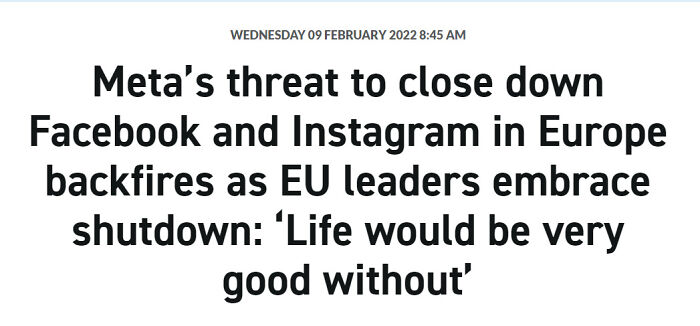



















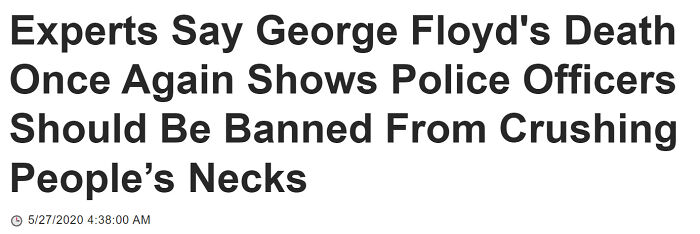



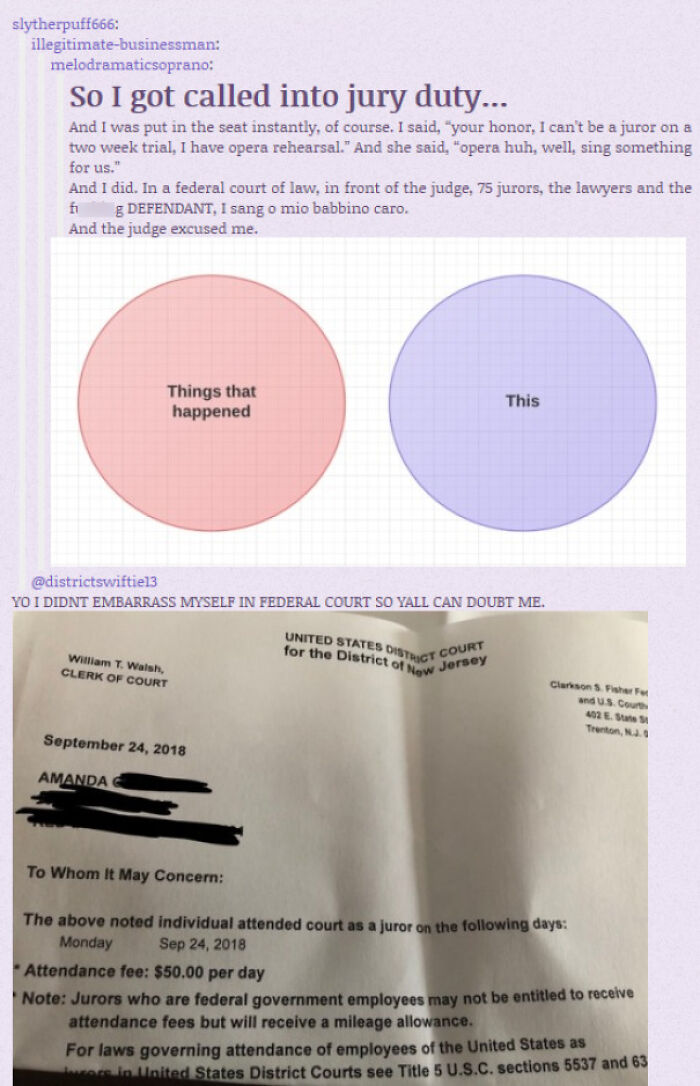









![You Expect Us To Believe You Own A Book? [xpost R/Nothingeverhappens] You Expect Us To Believe You Own A Book? [xpost R/Nothingeverhappens]](https://www.boredpanda.com/blog/wp-content/uploads/2023/07/64bf8e2728324_rj1Lgzj__700.jpg)

